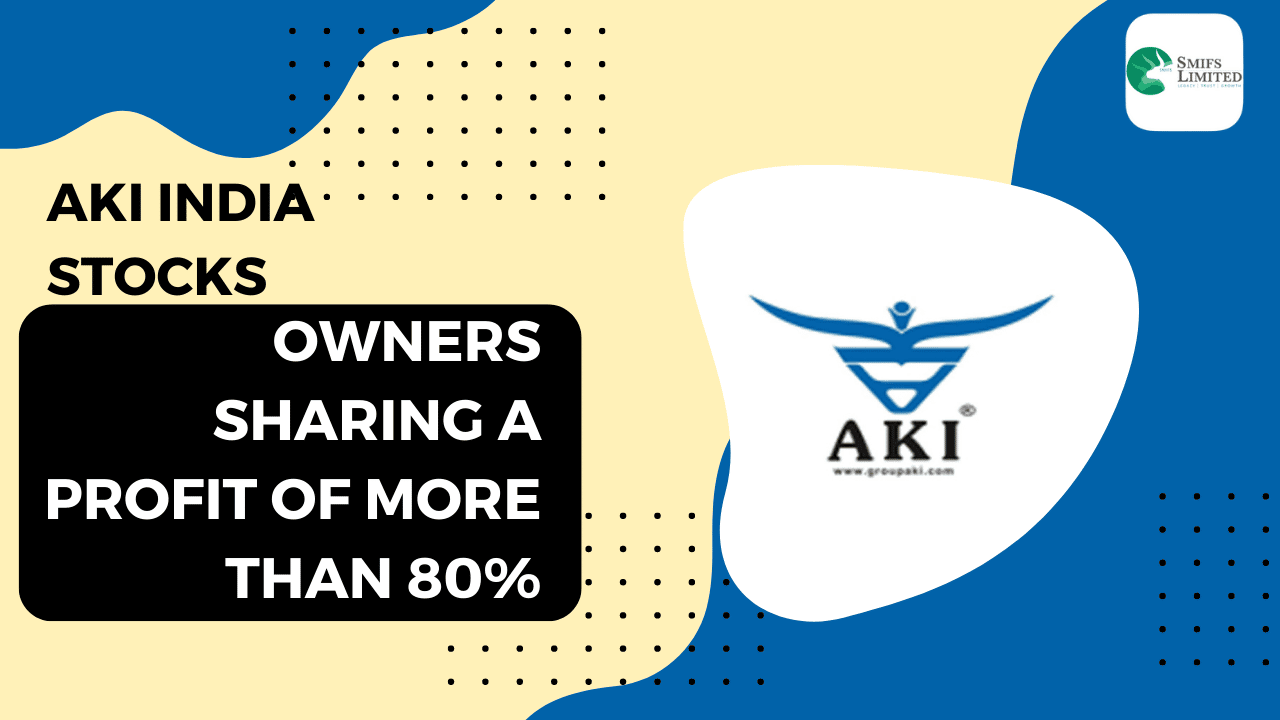There are multiple advantages of a demat account. Everybody is aware of bank savings accounts. Our money is easily accessible, and it provides protection against loss and improper use. For investors, this is equivalent to a Demat account. Demat accounts are now required in order to invest in stocks.
An electronic format for holding shares and securities is called a Demat Account. In order to facilitate online trading for users, it is necessary to register a Demat account in order to keep shares that have been purchased or dematerialized, or transferred from physical to electronic form.
Depositories offering free Demat account services in India are NSDL and CDSL. These services are made possible by intermediaries or stockbrokers like SMIFS Limited.
The Demat account fees for each intermediary could differ depending on the type of subscription, volume maintained in the account, and terms and conditions between a brokerage and a depository.
Demat Account: What Is It?
The acronym for a Dematerialized Account is Demat. A customer’s shares and other securities are stored in an online portfolio known as a demat account. It no longer makes physical share certificates necessary to own and trade.
Holding shares and securities in an electronic (dematerialized) format is done via a Demat account. Additionally, a portfolio of bonds, mutual funds, exchange-traded funds, and other comparable stock market assets can be assembled using these accounts.
For NSE transactions, demat trading was initially launched in India in 1996.
What characteristics does a demat account have?
Cost- effective: Getting a Demat account is free of charge. There is no fee to start a Demat account with. However, if one keeps up an account with, a yearly maintenance fees is charged.
Simple tracking: One is eligible to receive monthly statements on one’s email address and mobile device when one opens a Demat account. One can even can monitor account activities and control actions with the tracking features.
Smooth service: For a complete experience, we at SMIFS enable quick and easy connecting with your bank account. Using UPI and net banking, one can conduct transactions with more than 40 banks without any problems.
Simple Securities Dematerialization: All of your physical certificates can be converted to electronic form with the assistance of the depository participant (DP), and vice versa.
Getting Dividends & Benefits on Stock: It makes advantage of simple and quick ways to get dividends, interest, and refunds. Everything is automatically credited to the account. Additionally, it updates investor accounts with stock splits, bonus issues, rights, public issues, etc. using the Electronic Clearing Service (ECS).
Simple Exchanges: Using a demat account has made share transfers considerably quicker and simpler.
Stock Market Liquidity: Selling shares and getting money has never been easier, quicker, or more convenient thanks to Demat Accounts.
Advance Against Equities: One might apply for a loan against the securities held in their demat account after opening one.
What are the advantages of a demat account?
Quicker resolution
One can purchase or sell shares with a single click if one has a Demat account. One of the main advantages of a Demat account is that transactions are not only hassle-free but also settle more quickly. This implies a quicker transfer of ownership and payment clearance. Indian stock exchanges currently have a T+2 settlement time, meaning that all settlements are made two days after the transaction date, as opposed to the lengthy settlement times that existed prior to Demat. This is a huge advancement over the days of paper trading. Trading becomes safer as a result of the quicker settlement and less chance of fraud.
Maintain Several Items in One Account
One can invest in stocks, futures and options (F&O), commodities, Unit Linked Insurance Plans (ULIPs), and Equity Linked Savings Schemes (ELSS) with ones online Demat account. With the use of \online Demat account, one can also monitor and contrast the performance of all of their investments on a single screen.
Guards Your Property Against Loss, Damage, and Theft
Your holdings are held in a dematerialized form when you open a Demat account online. This indicates that they are shielded from harm brought on by deterioration, loss, or theft.
Protection Against Forgeries, Fraud, and Impersonation
It was usual for physical shares to be counterfeited or for owners to be impersonated using counterfeit documentation prior to the introduction of online Demat accounts. The inability for someone to falsify your assets or assume your identity on the exchanges is a major benefit of Demat accounts.
Online Accessibility and Monitoring
Through online access to demat accounts, investors can keep an eye on their assets, follow the performance of their portfolios, review transaction histories, and create statements. It offers convenient tracking of investments and real-time information
Demat account: What are its types?
Demat accounts typically come in two varieties:
Regular Demat Account: Individual investors who wish to hold and trade stocks for their own investments may consider this form of Demat account. It gives access to a variety of securities, such as equities, bonds, mutual funds, and government securities, and is usually opened by retail investors.
Non –Repatriable Demat Account: Non-Resident Indians (NRIs) who want to make investments in the Indian securities market can open a repatriable (NRI) Demat Account. It permits non-resident Indians (NRIs) to own and control their investments in India, including mutual funds, stocks, and other legal securities. Repatriable Demat accounts make it simple to transfer money from an overseas bank account to an NRI’s overseas bank account.
The investor’s residency status and investing goals determine the type of Demat account one would open. Additional specialized Demat account types might also be offered to meet the needs of particular investor groups, including institutional investors, corporate entities, and foreign portfolio investors (FPIs)
Indians are shifting their investment habits from traditional bank deposits to stock investing, with an increase in retail shareholding in Indian stocks. This shift is driven by increased awareness about stocks, regulatory efforts, and a willingness to take on risk. Young Indians are increasingly exploring stock market investments, with retail participation driving the Indian stock market. Firms are actively raising funds through the stock market route. To participate in stock investing, a demat account is essential, offering more than just share buying, selling, and holding.





